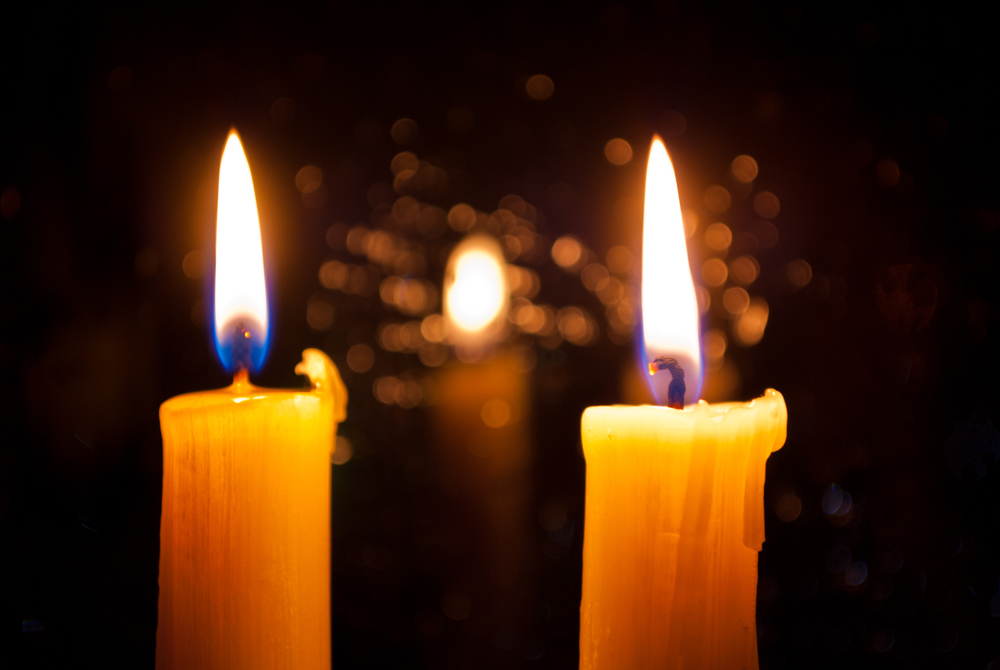Toldos Yaakov Yosef, written by a disciple of the Baal Shem Tov, discusses (in the Likutei Shmu’os section) the tradition that one who is buried on Erev Shabbos is spared the punishment of chibut hakever (the anguish the soul feels when the body is thrown into the grave). There are several stages of purification that a person goes through after his soul departs, one of which is chibut hakever, and our Sages taught that one who is buried on Friday is not subjected to this form of punishment.
At first glance, this statement does not give us any practical instruction. After all, it is not in a person’s control when he is buried. And thus, seemingly, Chazal are just giving us a sign, informing us that if we see somebody buried on Friday, we should know that he has been spared the punishment of chibut hakever.
The Toldos Yaakov Yosef, however, cites the Baal Shem Tov as explaining this comment on a deeper level. He writes:
This is a profound moral lesson — that one should “die” on Friday, turning away from all worldly matters like a dead person, in order to make preparations for Shabbos, and through this he will be saved from chibut hakever.

According to the Baal Shem Tov, one is spared this punishment by acting as though he is “dead” on Friday in the sense that he has no interest in and is involved in nothing other than preparing for Shabbos.
It seems, at first glance, that the Baal Shem Tov’s reading of this passage has no connection to the literal meaning. Literally, our Sages speak here of one who is buried on Friday, whereas the Baal Shem Tov speaks of one who exerts himself preparing for Shabbos on Friday. The Baal Shem Tov’s creative interpretation does not seem to bear any connection to the plain meaning of our Sages’ comment.
However, I recently saw an article that suggested a deep explanation of the Baal Shem Tov’s remark, whereby it indeed closely relates to the plain meaning of this passage. In the journal Mi’kavtze’el (published by Rabbi Yaakov Hillel’s Yeshivat Ahavat Shalom), Rabbi Michel Zilber writes that when a person is buried on Erev Shabbos, it is as though he were buried on Shabbos, because the sanctity of Shabbos already begins to set in on Friday.
As such, he experiences far less pain at the moment of death. Normally, as our Sages teach, the separation of the spiritual component of one’s being from his physical component at the time of death is exceedingly painful, and this pain is experienced when the body is placed in the grave, as well. On Shabbos, however, a person is already connected with spirituality as a result of the special kedushah of Shabbos, and thus this separation of the soul from the body occurs with far greater ease, without severe pain. Hence, our Sages established that the suffering normally accompanying death is not experienced when the death and burial occur on Erev Shabbos, when the deceased was already closely connected to the spiritual realm through the sanctity of Shabbos.
With this background, Rabbi Zilber proceeds to explain the Baal Shem Tov’s statement cited by the Toldos Yaakov Yosef. He writes:
Whoever turns away from all worldly matters during his lifetime has already begun separating the ‘“outer shell,” and thus the separation [at the time of death] will be easy for him, as it is for the righteous.
If somebody connects himself to spirituality during this lifetime, as reflected by Shabbos preparations, whereby one uplifts the physical world to a higher plane, then his soul’s separation from his body at the time of death will be much easier. He will experience misas neshikah, the “death of kissing” which was experienced by the great tzaddikim such as Moshe, Aharon, and Miriam, whereby Hashem comes close to a person and takes his soul from this world without any pain, as though giving a kiss.

The Gemara (Berachos 8a) describes different forms of death. The easiest form of death, experienced by the tzaddikim, is compared by the Gemara to removing a hair from milk, which is a fairly simple and smooth task. The most difficult form of death, the Gemara teaches, resembles the attempt to pull a thick rope through a small hole, which requires immense effort.
The Baal Shem Tov is teaching us that the difficulty of death depends on how connected a person is to the mundane aspects of this world. And thus when death occurs on Shabbos or even Erev Shabbos, the process is less painful, since the person is already connected to spirituality. But additionally, a person becomes spiritually uplifted by preparing for Shabbos. And thus if a person devotes himself on Fridays to properly prepare for Shabbos, then regardless of the day of his death, he will be spared the pain of chibut hakever because he is connected to the spiritual realm.
According to the Baal Shem Tov, then, although we of course cannot control the day of our burial, we can control how the process of death unfolds. By properly preparing for Shabbos, we become loftier, more spiritual people, and thus when the time comes after 120 years, the soul’s departure from the body will occur smoothly and without pain. When we prepare for Shabbos, focusing our mind and attention on Shabbos, we bring the kedushah of Shabbos upon ourselves already on Friday, thus elevating ourselves to this unique level of sanctity.
Additionally, our Sages teach that those suffering in Gehinnom are granted a respite on Shabbos, and the earlier a person prepares for Shabbos on Friday, the earlier his respite begins. And thus preparing for Shabbos helps us both in this world and the next.
Shabbos preparations are more than just a practical need. By preparing for Shabbos we elevate ourselves to higher levels of kedushah, the power of which affects us not just here in this world during our lifetime, but as we have seen, also after we leave this world, as the benefits of this great mitzvah are eternal.
————————-
Reproduced from Living Shabbos by Rabbi David Sutton
ArtScroll / Mesorah Publications Ltd. Reprinted with permission.





